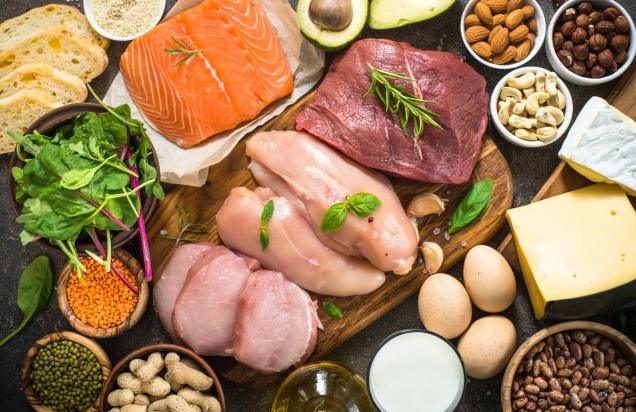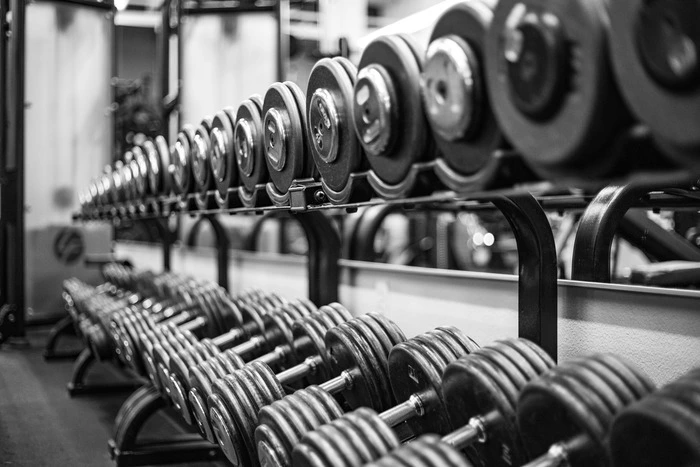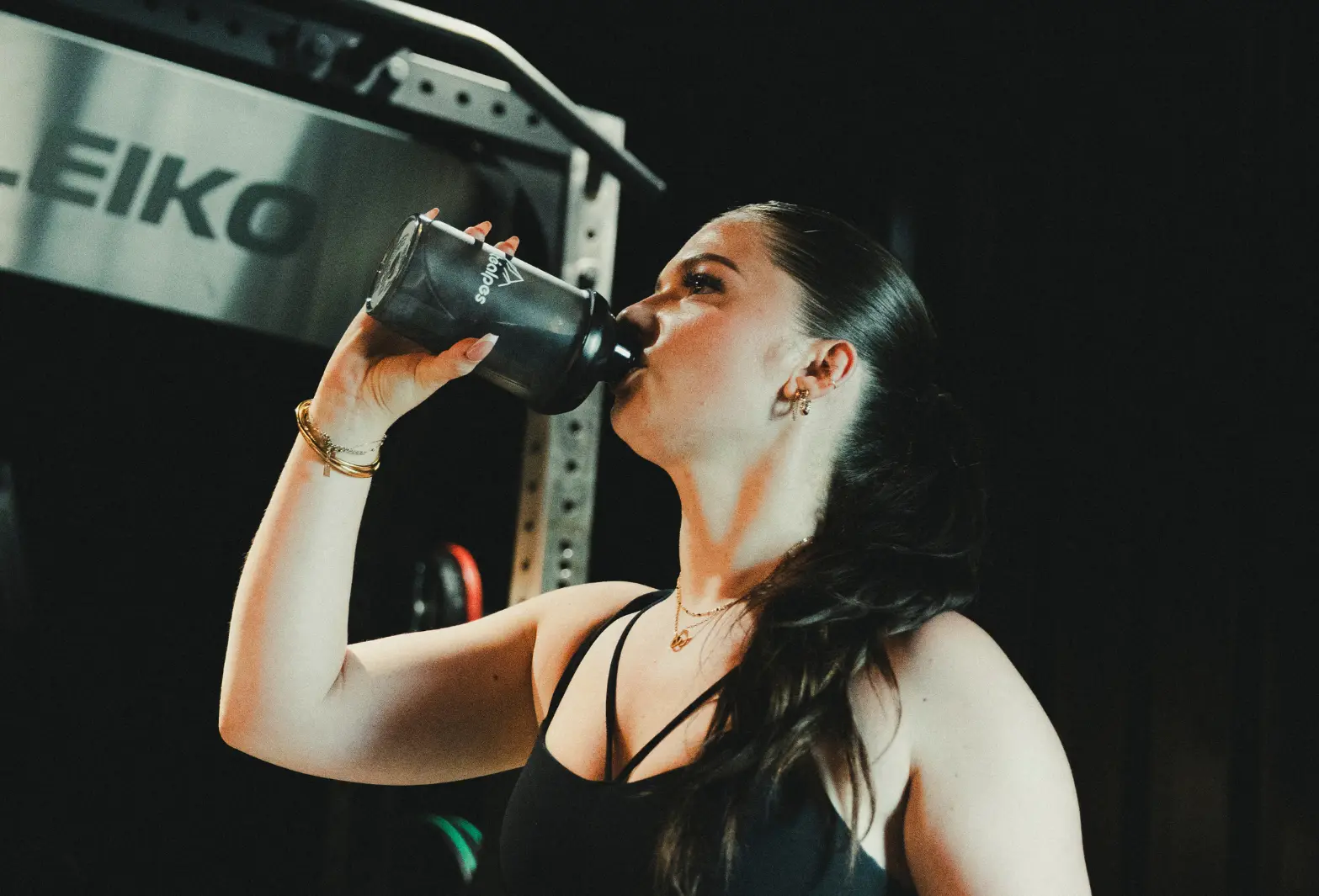In bodybuilding, knowing how to choose the right protein to support recovery, promote muscle development and, above all, lean mass gain is a frequent question. The answer is not so simple, since the choice depends on body weight, goals, timing of intake and the purity of the powder chosen.
Classic bodybuilding proteins are dietary supplements added to a balanced diet rich in protein-rich foods (eggs, meat, cow's milk, legumes, etc.). For many athletes, they are a practical option for rapidly providing the body with the right amount of protein, limiting catabolism and supporting muscle (re)building.
The current market offers a range of different products: native Whey, Whey isolate, Whey hydrolysate or vegetable powders enriched with amino acids and minerals. Each is distinguished by its protein content, digestibility and nutritional value. Some are more suitable for mass gain, others for lean training. A good protein must above all contain an adequate level of leucine for post-training efficiency. It should also be as pure as possible, with no added sugars, unnecessary fats or artificial flavourings.
Let's compare the different types of protein to find out which is the most effective for bodybuilding, and to choose the best option for your sports nutrition needs.
Why are proteins essential?
The role of leucine in muscles
Eating protein is essential when you're building muscle. The system that maintains muscles is a balance between two natural physiological mechanisms: protein synthesis and protein breakdown. Put simply, the difference between protein synthesis and degradation must be in balance to maintain muscle levels. If we want to build muscle mass, which is the expected result of strength training, we need a positive difference, i.e. greater synthesis than degradation.
And what promotes protein synthesis? Protein, because it serves both as a substrate and as a trigger for adaptation after resistance and aerobic exercise¹. Protein therefore plays a role not only in muscle hypertrophy, but also in recovery, making it an essential macronutrient for bodybuilding enthusiasts.
If we go into a little more detail, each protein is made up of a chain ofamino acids. 9 of these are not manufactured by the body and must be supplied by the diet (isoleucine, leucine, valine, lysine, methionine, phenylalanine, threonine, tryptophan and histidine), making up 40% of total amino acids².
These essential amino acids (EAA) include leucine, which plays a major role in stimulating muscle protein synthesis¹. This BCAA activates the proteins responsible for the signalling that triggers translation, two physiological mechanisms linked to protein synthesis.
How much protein do you need for bodybuilding?
Over and above their necessity, you need to know how to take your protein, i.e. the right quantities according to your profile, at the right time in relation to your needs, before knowing which protein to choose.
Protein needs differ between endurance and strength athletes. In bodybuilding, there are two profiles of athletes:
- those who want to stabilize their muscle mass, whose protein intake can be 1.3 to 1.8 grams per kilogram per day¹ ;
- those in periods ofintense training, whose needs may be as high as 1.8 to 2.0 g/kg/day. This option, combined with a caloric deficit, may be of interest in preventing muscle loss during a muscle lean¹.
Scientific recommendations depend on the level of the athlete, with more experienced athletes requiring slightly less intake, hence the importance of being monitored by a specialist coach or dietician to ensure a tailor-made program.
How to consume protein for bodybuilding?
The timing of protein intake depends on your objectives.
For example, for better adaptation to exercise, i.e. more muscle gain or greater oxidative capacity, protein intake should be close in time to exercise¹.
As for recovery, athletes need to focus on 4 parameters: hydration, carbohydrate restoration, damaged protein repair and remodeling. To achieve this, protein consumed in liquid form, combined with carbohydrates, would provide the optimal supply of nutrients¹.
Protein synthesis is maximized by taking protein through 3 to 4 meals. The challenge is to maintain a constant level of amino acids, which in part determines muscle hypertrophy and has an impact on requirements.
What's the best protein for bodybuilding?
Before comparing protein sources, it's important to remember that the priority remains natural protein foods. In other words, protein powders are taken as a complement to (and not instead of) a varied and balanced diet.
Protein quality first and foremost
It's essential to look for protein quality , one measure of which is a so-called protein-corrected amino acid score¹ (but not the only one).
The International Society of Sports Nutrition (ISSN) details in its recommendations that leucine content should ideally be between 700 and 3,000 mg for acute doses of protein. Here, for your information, is a table of the leucine content of certain foods⁴ :
| Food (100 g) | Leucine (g) |
|---|---|
| Chickpeas | 0,63g |
| Eggs | 1,40g |
| Lenses | 0,65g |
| Chicken | 1,48g |
| Almonds | 1,49g |
| Beef | 1,76g |
| Soybeans | 2,87g |
The ISSN also stresses the importance of a balanced intake of essential amino acids, and encourages athletes to consume complete protein sources, i.e. those containing all the EAAs.
Whey protein
According to ISSN recommendations, 20 to 25 g of protein corresponding to 8 to 10 g EAA of a fast-absorbing protein would maximally stimulate protein synthesis in post-resistance⁵ exercise. And it just so happens that lactoserum (or whey) meets all the requirements.
Whey protein has the advantage of being naturally rich in BCAAs (leucine, isoleucine, valine). They are the natural proteins with the highest ratio of essential amino acids to total amino acids, even higher than salmon, chicken or egg protein. They are also highly bioavailable, making them an ideal post-exercise supplement. And last but not least, they offer an attractive price/quality ratio, making Whey an affordable protein.
There are many different forms of Whey on the market: hydrolysed Whey, Whey concentrate, Whey isolate, etc. Clear Whey is not necessarily useful and is highly processed, but what is the best Whey out there?
The different types of Whey refer to different filtration processes, but when it comes to blends with other ingredients, this doesn't make much difference. Raw Whey is an isolate that represents the purest form of Whey and is the one we recommend, particularly for building dry muscle. We therefore avoid whey concentrates containing lactose and fats, which we prefer to avoid in post-workout drinks.
Casein
Casein is also a milk protein, so how do you choose between casein and Whey?
The big difference lies in digestion. When ingested, casein bumps into the stomach and is digested slowly, which slows down the appearance of leucine, preventing sufficient concentration to activate post-exercise protein synthesis¹.
It is therefore often recommended before bedtime (30 to 40g) to increase nocturnal protein synthesis, without influencing lipolysis³. However, it does have one drawback: although its leucine content is high, its aminogram is less complete than that of Whey (less BCAAs and EAAs).
Also, it is possible to slow down the rate of assimilation of Whey, whereas it is not possible to accelerate that of casein. Casein is therefore a good complement to Whey for sleep, but if you have to choose between the two, Whey is more interesting, as its absorption can be slowed down for the night.

Animal proteins
Proteins from animal sources such as milk, eggs and meats are the first to be cited as high-quality proteins¹. This is partly because these proteins are rich in leucine, which may explain their effectiveness in stimulating protein synthesis and the process of muscle hypertrophy¹.
Overall, they have a better profile, but may be less convenient to assimilate and less digestible than a Whey shaker or a post-workout gainer.
Plant proteins
Here too, a distinction can be made between "raw" food proteins and powders.
A study¹ comparing soy protein, the benchmark vegetable protein, with whey protein and casein shows that :
- the amino acid score of isolated soy protein is interesting, but lower than that of milk protein, which plays a role in hypertrophy;
- the rate at which leucine appears in the body's circulation is intermediate, between a faster rate (Whey) and a slower rate (casein).
And yet, while plant proteins may seem less interesting on paper, as they are less rich in leucine, some of them do show an interest in bodybuilding. This is the case with pea protein supplementation, studied in comparison with whey protein in 161 men aged 18 to 35, resistance-trained on the muscles of the upper limbs⁶. The study showed a significantly higher increase in biceps muscle thickness compared with placebo, and an increase in strength in all 3 groups (pea, whey, placebo).
The study concluded that vegetable pea protein was a possible alternative to whey-based food products.

What is the most effective protein for bodybuilding?
We've looked at the highest-dose protein, the one for muscle growth or recovery. We've distinguished between dietary protein and protein powder, and between animal and vegetable proteins, but how do you choose the right one?
Depending on your sporting objectives.
Choosing a protein for weight gain
Muscle mass gain requires a rapid, post-exercise intake of high quality protein with a high protein content. Whey isolate is the best choice to meet these needs.
It can also be precisely dosed and is easy to transport for those on the move or with long working hours.
Beware, however, of the individual's physiological profile, as the caloric requirement of ectomorphic profiles is greater to compensate for an active basal metabolic rate. So, for these profiles, a mass gainer may be a more interesting option, although Whey remains the best basic protein for muscle gain.
Choosing a protein for muscle leaning
The key to successful muscle drying is to burn fat without losing muscle. Low-calorie proteins are therefore of interest to athletes who dry out in bodybuilding and want to optimize their body composition.
Whey for drying, combined with casein for nocturnal protein synthesis, form the ideal duo.
Vegetarian and lactose-free diets
Biological value refers to the quantity of protein retained by the body after absorption, and is therefore also used to determine the quality of a protein. A hen's egg has a biological value of 100. While those of vegetable proteins are lower (83 for rice and quinoa, 64 for whole wheat⁴), it is quite possible to combine them and even achieve values above 100 by doing so⁴.
Legume proteins are rich in lysine and low in sulfur amino acids (methionine, cysteine), whereas the opposite is true of cereals, which are rather deficient in lysine and rich in sulfur amino acids. It's therefore a good idea to mix cereals (rice, corn, wheat, etc.) and legumes (lentils, soya, peas, beans, etc.) in your diet to achieve a complete⁴ diet.
The pea and rice mix is an interesting example of a complete profile for bodybuilders who do not consume dairy products or who follow a vegetarian diet.
How to choose the right protein?
When choosing a protein powder, you need to know how to turn the scientific recommendations seen in this article into a product purchase, and the exercise isn't always straightforward. Here are a few things to keep in mind:
- check the natural leucine content, which remains the key amino acid for muscle synthesis. A good protein powder contains a minimum of 2 g per portion, without any subsequent enrichment.
- monitor the quality of the brand's manufacturing process, and opt for a gently filtered protein that preserves essential amino acids and guarantees good digestion.
- ensure product traceability, certifications and brand labels to avoid powders contaminated with prohibited substances.
- check for the total absence of additives that are unnecessary and unhealthy (sweeteners, sugar, complex flavourings, etc.).
- monitor the brand's spontaneous transparency and openness to direct-to-consumer communication.
As a consumer, more than taste, chocolate texture or flavor, it's best to look for the purity of the powder to avoid unpleasant surprises. Some brands add unnecessary ingredients that may be unhealthy or add nothing at all. Once again, the most effective protein is the high-quality one, which should remain the number 1 criterion of choice.
Conclusion: the most effective protein
Choosing the best protein for bodybuilding is far from simple, given the many products available on the dietary supplement market. The selection criteria remain: high protein content , nutritional value, purity and limited content of sugar, fat and other artificial flavours.
Pure Whey or Whey isolate tops the list of protein powders. Whey is the ideal powder for muscle-fiber development or optimum recovery, especially for those who are short on time and need a quick, effective post-workout snack. Beware of the different forms of Whey available on the market: some are expensive and others can be harmful to the body, depending on traceability and contaminants. Our best advice for choosing the right Whey or plant protein is to keep an eye on what it contains, its quality, origin, manufacturing process and leucine content. Even if it seems optimal, Whey is not miraculous and does not replace a natural diet rich in quality protein.
The "right" protein depends on body weight, metabolic constitution and objective (muscle definition, lean mass gain, weight loss). It can really help optimize amino acid intake to support muscle fiber development and avoid catabolism, especially during intense training phases.
The most effective protein is the one that adapts to the needs, profiles and sensitivities of consumers, such as those following a lactose-free or vegetarian diet, who can find plant-based alternatives that are just as effective, depending on the product chosen.
Sources
Further information
Whey's effects: how long does it last?
15 nutrition tips for weight gain
How long does it take to build mass?














